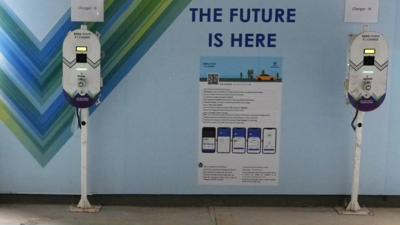In April 2016, Elon Musk invited Indians to pre-order the Tesla Model 3, sparking excitement across the country. Enthusiasts like Vishal Gondal, founder and CEO of health-tech startup GOQii, eagerly paid a $1,000 deposit, reported AP. Despite not knowing the launch date or final price, Gondal was willing to wait.
However, eight years later, many, including Gondal, have yet to receive their cars, leading to frustration and skepticism. Production and market challenges India, the world’s third-largest auto market, presents unique hurdles. With the average car price in 2023 at $14,000, compared to $47,000 in the US, a $40,000 Tesla Model 3 is positioned as a luxury vehicle in India.

This pricing, combined with high import duties and the need for extensive after-sales service, complicates Tesla's market entry, reported AP. Gondal eventually purchased an electric SUV from Audi, getting his $1,000 deposit back in January 2023 after intervention from a friend. Other early adopters, like Mumbai-based designer Hemant Suthar, also retrieved their deposits, expressing doubts about Tesla’s minimalist approach versus the luxury EVs now available.
Government policy and market dynamics To attract international automakers while protecting local brands like Mahindra and Maruti Suzuki, India reduced import duties on EVs from 70%-100% to 15% for cars under $35,000, provided the automaker commits to local manufacturing . Despite this, Musk’s 2019 concerns about high import duties potentially making Teslas “unaffordable” have persisted. A planned factory announcement in April 2024 was cancelled, adding to the uncertainty, reported AP.
Global market shifts Tesla’s global market has shifted significantly over the past five years. The company, now with factories in China, Germany, and the US, has faced declining sales. The Cybertruck, their only new product, has yet to gain significant overseas demand.
In the first half of 2024, Tesla sold 831,000 vehicles, falling short of Musk’s forecast of over 1.8 million for the year. Consultant Tu Le suggests Tesla’s challenge is adapting to emerging markets like India.
Local competitors such as BYD , which has expanded globally with both affordable and premium models, are intensifying competition. Le highlights the diminishing novelty of EVs and the need for Tesla to offer more affordable models to stay competitive. Current market and future prospects India's EV market, though growing, remains small, with EVs comprising only 2% of total car sales in 2023.
Tata Motors leads the market, with Mahindra & Mahindra and BYD also making significant strides. BYD, for instance, introduced the BYD Seal in India in March 2024. To appeal to mass-market buyers, Tesla would need to price its cars around $30,000, which would necessitate local manufacturing.
Scepticism persists about Tesla’s ability to compete with established luxury brands that have long-standing dealership and service networks in India. Tesla would also need to establish a robust charging infrastructure. Uncertain future Despite plans to increase factory capacity and a forthcoming affordable model expected in 2025, Tesla’s future in India remains uncertain.
Rajesh Kumar Singh, leading industrial growth efforts in India, noted that discussions with Tesla have been complicated by staff changes, leaving the future of Tesla’s Indian venture in limbo. As the EV landscape evolves, Tesla’s challenge is clear: adapt to the local market or risk falling behind in a rapidly changing industry..



















